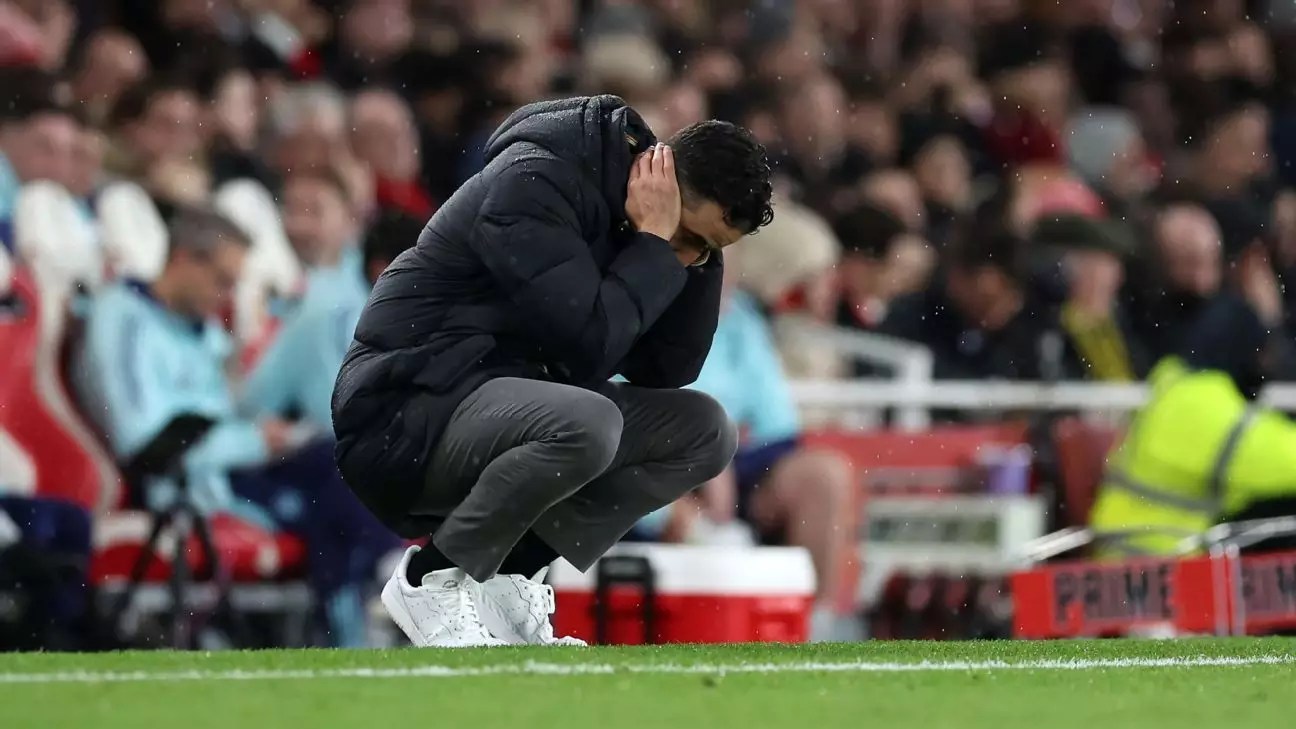Ruben Amorim is currently navigating uncharted waters as the head coach of Manchester United, having recently faced the stark reality of his first loss in charge against rivals Arsenal. The 2-0 defeat has certainly stung, occurring merely four matches into his tenure, and it brings forth essential questions about the expectations surrounding this historic club. The team’s performance under Amorim echoes the highs and lows typical in football, where a single match can reshape perceptions and undermine the psychological fortitude of players and fans alike.
Understanding the Landscape
Amorim’s assertion that “we have to manage expectations” highlights the necessity of grounding ambitions within the context of the Premier League’s competitive structure. Arsenal, a team that consistently aims for the summit of the league, proved to be a formidable opponent, making the defeat somewhat predictable in light of their recent success. Amorim’s comments suggest a coach who is acutely aware of the pressure to perform, yet he advocates for patience amidst the turbulence of results. This balance is crucial, as rapid judgment often eclipses the intricate process of building a cohesive unit, especially in a league known for its unpredictability.
Looking forward, Amorim is set to encounter a demanding schedule with critical fixtures against Nottingham Forest and a Europa League match against Viktoria Plzen, followed by a Manchester derby against Pep Guardiola’s City. Such back-to-back engagements can significantly affect a team’s morale and performance. Amorim’s insight that “one week can change a lot” underscores the potential for rapid transformation within the league standings. Wins could reinvigorate the squad’s confidence, while consecutive losses might invite further scrutiny and pressure.
Tactical Shifts: Finding the Right Formula
One of the more intriguing aspects of Amorim’s early choices has been his willingness to make tactical alterations to the squad, notably sidelining key players such as Marcus Rashford and Amad Diallo, who previously excelled in a convincing victory against Everton. This decision illustrates his strategic approach, yet it also raises questions about consistency and selection stability. Ahead of the showdown with Nottingham Forest, Amorim emphasizes progress toward identifying his optimal lineup. The challenge lies in balancing player fatigue and form, particularly with the likes of Bruno Fernandes, whose impact on the pitch is undeniable despite concerns over his fitness.
Ultimately, Amorim’s focus on “continuing the job” speaks to his resilience and commitment to building a foundation for future success. The evolution of Manchester United under his leadership may take time, but establishing a culture that prioritizes persistence over immediate achievement is essential. Understanding the nuances of player management, tactical flexibility, and emotional resilience will play a pivotal role in shaping his legacy at the club. As United grapples with the highs and lows of the Premier League, the journey ahead is as much about patience as it is about ambition.


Leave a Reply